Q&A With IAAF Athlete of the Year, World Champion Ashton Eaton
Q&A With IAAF Athlete of the Year, World Champion Ashton Eaton
After being named IAAF Athlete of the Year, two-time decathlon World Champion Ashton Eaton caught up with FloTrack on the honor, his decathlon world record
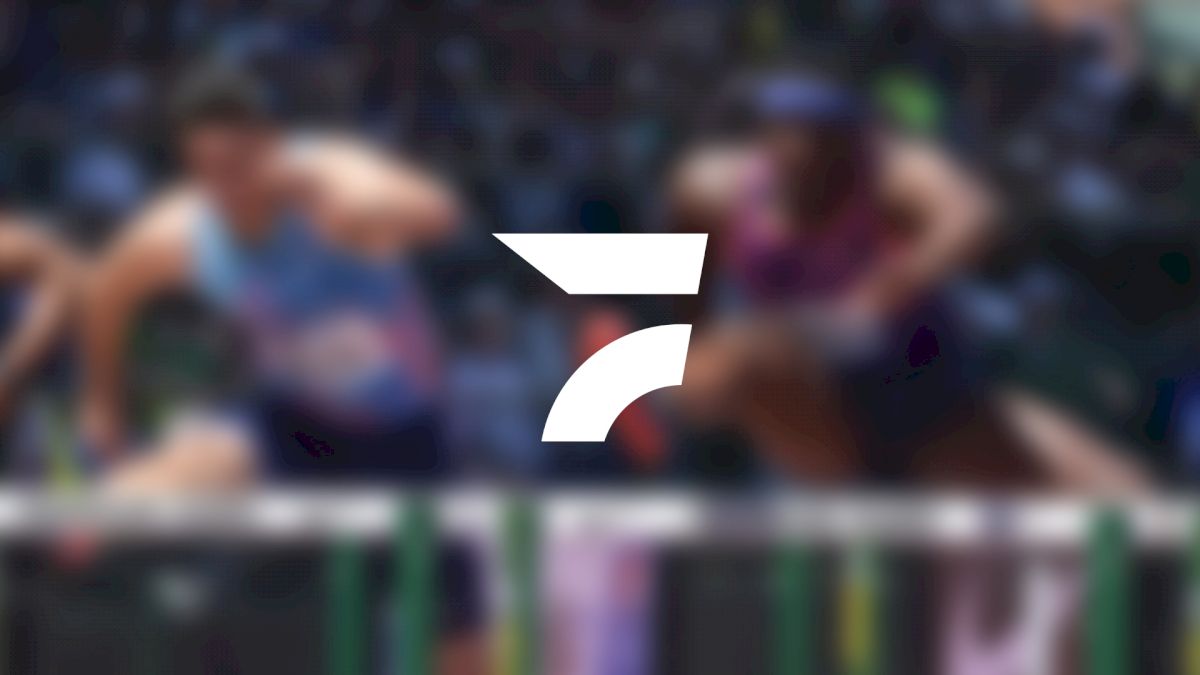

After being named IAAF Athlete of the Year, two-time decathlon World Champion Ashton Eaton caught up with FloTrack on the honor, his decathlon world record, training with his wife Brianne, and the mental state of heading into the 2016 Olympic year.
You were named IAAF Athlete of the Year last week. Congratulations! What was your reaction when you heard the news?
“[laughs] Uh I don’t know. What’s a good metric these days? Twitter followers? Haha. That’s gone up, like, 500 [laughs]. No it was cool, I’ve gotten a lot of congratulations and a lot of people, mostly the old guard, people who really pay attention to track like the type that are probably on track and field’s news forums and things like that were saying, ‘hey I think you’re the first decathlete ever to win.’ So I thought that was cool.”
I saw that you posted a really heart-felt message on Twitter after the news came out. I thought it was really cool that you were so humble about beating Usain Bolt and Christian Taylor for the honor. Can you talk about that a little bit?
My thoughts below. Thank you everyone. pic.twitter.com/W1R4IojZiY
— Ashton Eaton (@AshtonJEaton) November 26, 2015
“In those types of situations, you can’t really have a winner and a loser, you know what I mean? It’s basically what I said. To me, those guys are…I mean I remember being in high school and this is like, when maybe YouTube was starting and I remember hearing about this kid, Usain Bolt who was our age but running 19 seconds and I was like, there’s no way that’s a real person! That’s totally a rumor and this and that. Everything I said, I thought and obviously believed it because I wrote it, but I definitely don’t think that I beat any of those guys, it’s just not possible, but it was cool to be among them and be part of the sport.”
Despite being hurt early on in 2015, you managed to come back and put up personal bests in several events - 400m, 60m hurdles, 110m hurdles, pole vault - prior to the World Championships in Beijing. Talk about the process of making that huge comeback to break your own world record in the decathlon.
“The injury thing kind of came out of nowhere. Sometimes as an athlete you can sense that you need to back off because something is building and you don’t want to get hurt, but sometimes you have those ones that are just whamo! and come out of nowhere. That happened to me, and it was something that didn’t really happen to me before, maybe back in 2013 I was hurt a little bit, so that was tough.
It’s really hard as an athlete, especially when I did not compete in what I do, the decathlon in 2014. It was hard to have to keep waiting, and keep waiting, and being patient and basically not doing anything for six weeks was tough especially in the prime time part of the season. We’re looking at May, June, July you know. So that was tough, but in the end I think it was the smartest.
To get through those things, I always try to remind myself that it’s more important to get to the line 100 percent healthy, even if I’m out of shape. I did end up doing that. Of course I have a great team, my physio, Harry [Marra] is really good with the training program, always knowing that it’s better to back off, even if I’m not training heavily for six weeks or something, that it’s ok. As long as I’m healthy, then it’s ok so we stuck with that. Of course when I did start competing, I think the by-product of all that waiting was being really fired up. So I think that contributed to all my PRs. I was thinking, I’ve been doing nothing this whole year so now let’s do something.”
Was it tough going into Worlds knowing you had not completed a full decathlon in however many months?
“It was not tough. It was more an aspect of wondering. I’ve done a lot of decathlons so I knew I would get through a decathlon, but I didn’t know how I would feel. And that kind of plays into when things start coming down to the line.
I thought, let’s say it comes down to the line where I need to fight to get a medal. Am I going to be in shape enough to run the 1500m if I need to? If it comes down to a world record, maybe, will I be shape enough to do what I need to do there?
And I knew that it would be tough no matter what, so I’m glad I was tough enough to do what I had to do, but definitely during the pole vault, I started feeling what I thought I might feel, which was really fatigued and not used to that decathlon fatigue. I was tired and really kind of getting unmotivated which was kind of scary because I was thinking, ‘don’t get complacent dang it!’ [laughs] And in the javelin I actually started getting fired up, and if you were there watching, I didn’t sit down at all, I was just stalking around saying like, ‘come on! come on!’ like I was in a ring with a bear or something haha getting ready to fight so yeah I think that helps.”
Well it obviously worked, you ended up improving upon your world record in Beijing. I was lucky enough to watch it in person. Were you expecting to have that kind of performance?
“Not necessarily. My mindset going in was to just get to the starting line because I really wanted to do that decathlon in May in Gotzis, and I missed it, I got injured and that was frustrating, and in the back of my mind I know I have maybe a number of decathlons left and that number could maybe fit on one hand. So I thought, I want to take advantage of every opportunity. Because it’s something that I love to do and I know that I won’t be able to do it forever. So once I got to the starting line, and I was healthy and I was there, I thought, I don’t care what else happens. This is the best. So I ran my 100m, I did all my events, and around the pole vault I think it was pretty apparent so it started to get in the back of my mind there.”
Your wife Brianne also had a great championship as well. Despite being injured mid-way, she was still able to come away with silver. Talk about her performance and how she got through it.
“I think on the outside, the surface level, I mean of course it’s successful, any time you come away with a medal at a World Championship it’s awesome, but underneath it was a pretty big disappointment for her. She had the best score in the world going in, which 6808 is super respectable. And she knew though that it was going to be really tough with Jessica Ennis [Hill] coming back and she’s just so good, and Katarina [Johnson-Thompson] because also she’s good. So she was just ready to kind of go against the best and show her best and see where it came out.
She just let the mental aspect get to her. After the hurdles, she runs a PB and there’s zero excitement. And when I saw that I thought, this is not good, because another person did that in 2011 who was in the position to get the gold medal, still had to fight for it, but got the silver and that person was me haha. So I know how that felt, and so it was tough mentally for her, she was just nervous. It was her first time being a favorite and she didn’t handle it well. So silver to her was a failure and defeat, but we know from failures you do a lot of learning and I think she’s got some mental tools that she can use going into this year.”
We’re already in an Olympic year. How are these learning lessons as you mentioned, helping you head into 2016?
“I think every year, from the time we started in athletics, from the time anybody really starts anything, what you do is you learn and you go to the next year, you start building on top of that. So you can go zoom in on a daily level, we learn something new and now it’s here, now it’s here, building, building, building. So we’ve done a lot of building and we’re coming into this year with a lot more experience, with a lot more mental, physical tools.
And so I think we’re feeling confident heading into this year and going at it with an attitude of fun because we’ve gone through the years where it wasn’t fun and we were very serious and it wasn’t so great, and then we’ve gone through the years where we were taking it light and it was fun and awesome. So from those experiences we’re just trying to pick the most fun stuff to do and we’re feeling good heading into this year.”
Related Content
 FloSports Recognized Globally By International Sports Press Association
FloSports Recognized Globally By International Sports Press AssociationApr 18, 2024
 How to Watch: 2024 OSSAA Outdoor Championships | 3A-4A | Track and Field
How to Watch: 2024 OSSAA Outdoor Championships | 3A-4A | Track and FieldApr 18, 2024
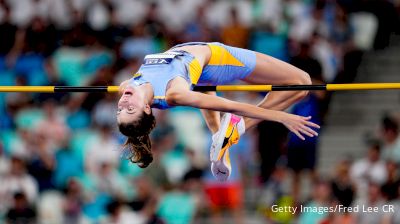 How To Watch The Diamond League Xiamen 2024
How To Watch The Diamond League Xiamen 2024Apr 18, 2024
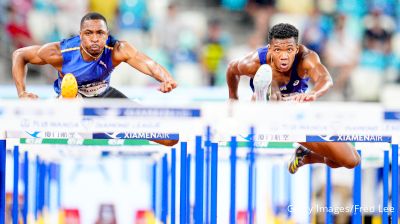 Diamond League Xiamen 2024 Schedule: What To Know
Diamond League Xiamen 2024 Schedule: What To KnowApr 18, 2024
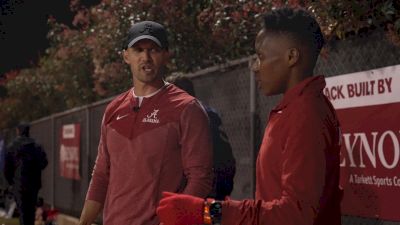 Alabama Distance Mic'd Up at The 2024 Bryan Clay Invitational
Alabama Distance Mic'd Up at The 2024 Bryan Clay InvitationalApr 18, 2024
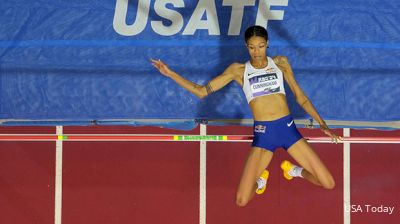 Vashti Cunningham Highlights Olympic Development High Jump Fields At Penn
Vashti Cunningham Highlights Olympic Development High Jump Fields At PennApr 18, 2024
 Peres Jepchirchir Aiming For Win And Possible All-Women's World Record At London Marathon
Peres Jepchirchir Aiming For Win And Possible All-Women's World Record At London MarathonApr 18, 2024
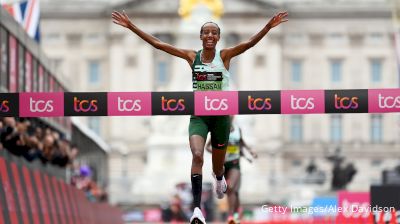 London Marathon 2024 Stream: Here's How To Watch
London Marathon 2024 Stream: Here's How To WatchApr 18, 2024
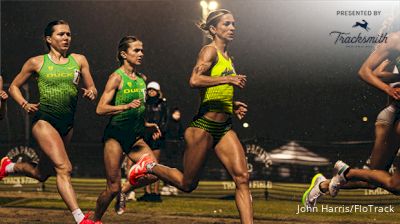 PR Of The Week presented by TrackSmith: Gracie Hyde
PR Of The Week presented by TrackSmith: Gracie HydeApr 17, 2024